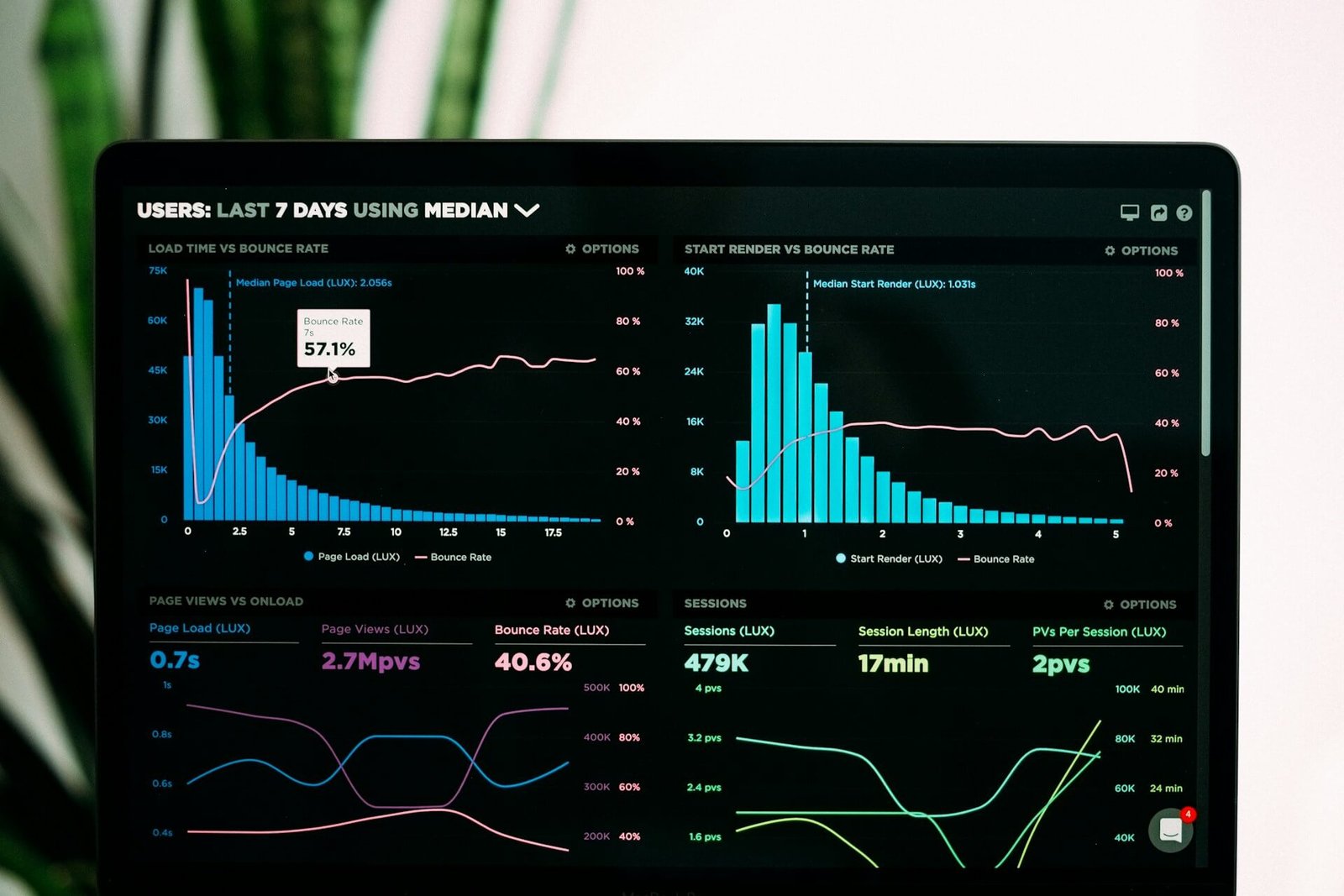Search traffic is changing faster than ever. AI isn’t just a new tech buzzword — it’s quietly reshaping how people find, consume, and trust online content.
Some websites are seeing drops in organic visitors, while others are thriving like never before.
The difference? How fast they adapt.
Photo by Luke Chesser on Unsplash
AI Search Is Rewriting Discovery
Traditional SEO used to be simple: rank high on Google, get traffic. Now, AI summaries and generative answers — like Google’s AI Overviews or ChatGPT search integrations — often give users what they want without sending them to any site. A quick answer replaces the click.
For content-heavy websites, this shift can mean fewer impressions and fewer visits. Studies already show AI-generated results can cut organic clicks by up to 30% in some categories. That’s massive. But it doesn’t mean SEO is dead — it means it’s evolving.
What AI Wants (and How to Feed It)
AI systems prioritize clarity, context, and credibility. They don’t “read” like humans — they interpret data patterns. That means your content now needs to be:
- Structurally clear (use headers, lists, schema markup).
- Factually solid (cite trustworthy sources).
- Purpose-driven (answer questions, not just rank keywords).
Think of AI as a reader that skims billions of pages in seconds. If your content is ambiguous, thin, or repetitive, it’s invisible.
But if it’s precise, helpful, and consistently updated, AI models start using it as a reference point — indirectly boosting your visibility even in AI-generated results.
The New Game: Topical Authority
Smart sites are focusing less on random keyword rankings and more on topic ownership. When AI detects that your site consistently publishes high-quality, interconnected articles around one subject, it starts to “trust” your domain.
That’s why niche expertise matters more than ever. A generalist blog may struggle, but a site that covers one area deeply — whether it’s finance, travel, or fitness — gains AI’s confidence. This shift mirrors how algorithms now think: “authority through context,” not just backlinks or on-page SEO.
The Rise of Brand-Driven Search
Here’s something interesting: while generic traffic may drop, branded searches are growing. Users are learning that AI can summarize the internet — but not replicate personality, style, or trust.
People might not search “best running shoes” as often, but they’ll search “Nike running shoes review” or “Wirecutter shoe guide.” This is where identity wins. When users remember your name, they bypass AI summaries and come straight to you.
So, brand becomes the new SEO. Smart sites double down on authenticity, voice, and recognizable expertise.
Smarter Sites Focus on Experience
Content alone isn’t enough anymore. Google and AI crawlers track engagement signals — bounce rates, scroll depth, time on page — to infer value.
Websites that hold attention with better formatting, clear visuals, and quick readability perform better across every metric. Fast load times, responsive design, and intuitive UX aren’t “nice-to-haves”; they’re survival tools in the AI-driven web.
Think of it this way: if users leave fast, algorithms learn you weren’t the right answer.
Diversifying Beyond Search
Smart sites are no longer relying on Google alone. They’re building traffic ecosystems that include:
- Email newsletters (direct relationship with readers).
- Social channels (especially TikTok, LinkedIn, and YouTube Shorts).
- Communities (forums, Discord, Reddit engagement).
This way, even if AI search cuts visibility, the audience remains reachable. The smartest sites treat SEO as one layer of a multi-channel strategy — not the entire foundation.
Human + AI: Not a Competition
Ironically, the most successful sites are the ones using AI themselves — not fighting it. From writing outlines to analyzing trends, AI helps content creators scale faster while maintaining quality.
But here’s the trick: they don’t let AI write for them; they let AI think with them. Drafts get human nuance, emotion, and storytelling. That’s what AI can’t replicate — and readers feel the difference.
What Smart Sites Are Doing Right Now
Here’s the playbook future-proof websites are quietly following:
- Audit their content — remove duplicates, update weak pages, and group topics logically.
- Add depth — answer real user intent, not just keywords.
- Optimize for AI crawlers — structured data, semantic markup, and natural question-answer formats.
- Track branded search growth — not just organic volume.
- Use AI tools wisely — research and draft support, not voice replacement.
This isn’t about beating algorithms anymore. It’s about aligning with how information is processed today.
The Real Opportunity
AI won’t kill website traffic. It will filter it. Visitors who arrive will be more intentional — people who want insight, not just answers. That means less fluff, more connection, and higher conversion potential.
So instead of asking “How do I keep my traffic from dropping?”, ask: “How do I make every visit count?”
Because that’s what smart sites are already doing. And they’re not just surviving AI — they’re quietly thriving through it.
Bibliography
- Forbes — “The 60% Problem — How AI Search Is Draining Your Traffic” (Apr 14, 2025)
Shows data indicating that AI‑generated search summaries can lead to 15‑64% declines in organic traffic for certain query types. - The Guardian — “AI summaries cause ‘devastating’ drop in audiences, online news …” (Jul 24, 2025)
Reports that sites ranking first for certain queries lost up to ~79% of traffic when an AI overview was displayed instead of a link. - Amsive / Search Engine Land — “Google AI Overviews: New CTR Study Reveals How to Navigate Click‑Drop‑Off” (2025)
Highlights significant click‑through rate (CTR) decline for queries triggering AI Overviews, especially non‑branded terms and lower ranking positions. - Pew Research Center — “Do people click on links in Google AI summaries?” (Jul 22, 2025)
Shows that when users saw an AI summary, they were much less likely to click on links (8% vs 15%) and more likely to end their session. - Semrush — “We Studied the Impact of AI Search on SEO Traffic”
Research showing that although organic traffic volume may decline, users coming through AI‑influenced paths often convert at higher value because they arrive having done more decision work. - GSQi / Glenn Gabe — “AI Search Currently Drives Less Than 1% of Traffic to Most Sites” (June 2025)
Argues that despite the hype, AI‑search channels currently account for less than 1% of most websites’ traffic—highlighting the risk of over‑focusing away from core search. - Search Engine Land — “How will generative AI impact website rankings and traffic?”
An overview of how generative AI changes search patterns, ranking volatility, and the evolving nature of content discovery.


